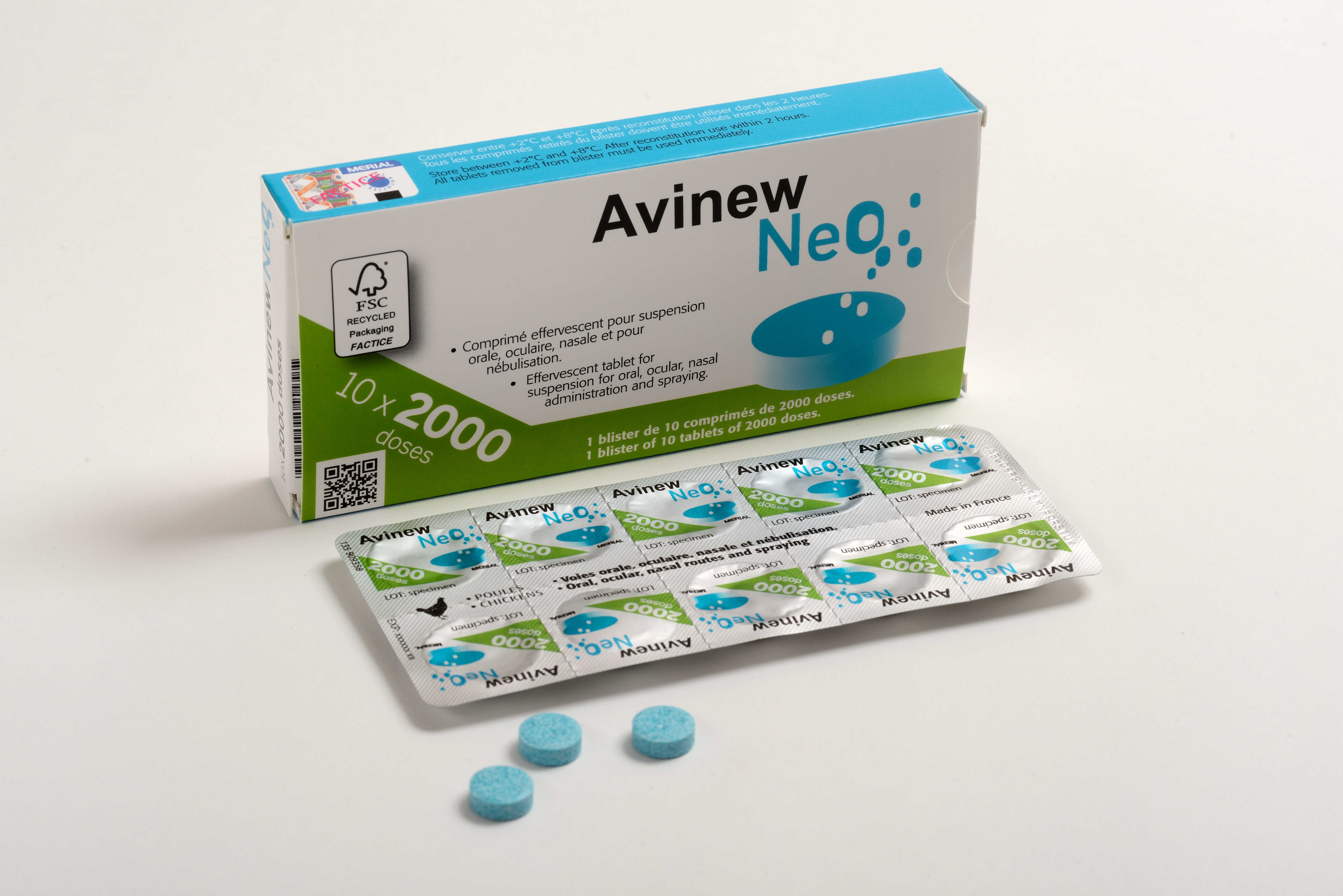



Merial Launches Effervescent Tablet Vaccine for Newcastle Disease
GLOBAL - The animal health division of Sanofi, Merial, has launched an effervescent tablet vaccine to replace its traditional vial and syringe vaccine for the prevention of Newcastle Disease.The innovation, Avinew™ NeO was launched during the 2015 International Congress of the World Veterinary Poultry Association in Cape Town, South Africa.
Jérôme Baudon, head of the avian business unit at Merial, said that Merial developed the effervescent tablet vaccine to reduce vaccination application errors: “In most cases, when you hear of a disease outbreak on a farm where vaccines have been given, the problem lies with the application method, not the vaccine. With the effervescent tablet vaccine, we at Merial have tried to reduce the margin for these types of error.”
He explained that instead of having to extract the vaccine from a vial with a syringe, as is done with traditional vaccines, producers now can simply “pop” the effervescent tablet vaccine from its aluminium packaging into water. The dissolved tablets can then be administered, like the original vaccine, orally, nasally or by aerosol spray.
Mr Baudon said the effervescent tablet vaccine contained the same active ingredients as Merial’s Avinew™ vaccine, of which Merial last year sold more than 15 billion doses in more than eighty countries. The tablet was, however, a much more convenient and eco-friendly formulation than the traditional Avinew vaccine.
While helping to improve vaccination efficacy, the effervescent tablet significantly reduces the mixing and handling time of the vaccines.
“This is important as labour is becoming increasingly expensive and hard to come by,” Mr Baudon said. He added that the effervescent tablets are also much safer to work with as no vials or syringes were used. There is also a smaller risk of contamination or adulteration of the vaccine.
In addition to this the Avinew NeO vaccine has a lower carbon footprint than the traditional vaccines as a packet weighs five times lighter than the vaccines contained in vials. They also take up less space, making them easier to transport.
So far it seems that the tablets have a longer shelf life than the traditional Avinew vaccine, but the full length still has to be confirmed. “Extended shelf life is a big benefit to the whole supply chain. Where vaccines usually have to be discarded after three to four months, producers can now look forward to a product that last six to twelve months. It will result in less wastage on the farm, dispensaries and clinics,” Mr Baudon said.
The tablets have to be stored in a cold place at temperatures between 2°C and 8°C. The packaging also poses a biosafety hazard and has to be disposed of correctly, as was the case with the syringes and vials.
Avinew NEO has been released in France, Germany, Philippines, Kuwait, Lebanon and Sarawak and Merial expects to obtain another 250 registrations on Neo for the next coming three years.
“The company is so confident of this new product that it is planning on turning all its vaccines into tablet form,” Mr Baudon said.
While Merial has invested more than 15 million Euros in its global manufacturing site in Lyon-Porte-des-Alpes, France to produce the Avinew NeO vaccines, Mr Baudon foresees that the prices of the effervescent tablet vaccines will be similar to what the company is charging for their traditional vaccines.
“We foresee that this will be a very popular product, so believe we will recoup the investment we made in the development of this innovation through sales growth,” he said.









